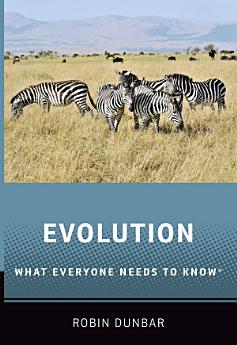Evolution: What Everyone Needs to Know®
এপ্রি ২০২০ · Oxford University Press
৩.০star
১টি রিভিউreport
ই-বুক
160
পৃষ্ঠা
family_home
উপযুক্ত
info
reportরেটিং ও রিভিউ যাচাই করা হয়নি আরও জানুন
এই ই-বুকের বিষয়ে
Evolution is one of the most important processes in life. It not only explains the detailed history of life on earth, but its scope also extends into many aspects of our own contemporary behavior-who we are and how we got to be here, our psychology, our cultures-and greatly impacts modern advancements in medicine and conservation biology. Perhaps its most important claim for science is its ability to provide an overarching framework that integrates the many life sciences into a single unified whole. Yet, evolution-evolutionary biology in particular-has been, and continues to be, regarded with suspicion by many. Understanding how and why evolution works, and what it can tell us, is perhaps the single most important contribution to the public perception of science. This book provides an overview of the basic theory and showcases how widely its consequences reverberate across the life sciences, the social sciences and even the humanities. In this book, Robin Dunbar uses examples drawn from plant life, animals and humans to illustrate these processes. Evolutionary science has important advantages. Most of science deals with the microscopic world that we cannot see and invariably have difficulty understanding, but evolution deals with the macro-world in which we live and move. That invariably makes it much easier for the lay audience to appreciate, understand and enjoy. Evolution: What Everyone Needs to Know® takes a broad approach to evolution, dealing both with the core theory itself and its impact on different aspects of the world we live in, from the iconic debates of the nineteenth century, to viruses and superbugs, to human evolution and behavior.
রেটিং ও পর্যালোচনাগুলি
৩.০
১টি রিভিউ
লেখক সম্পর্কে
Robin Dunbar gained his MA from the University of Oxford and PhD from Bristol University. He is currently Professor of Evolutionary Psychology at the University of Oxford, and an emeritus Fellow of Magdalen College. He has held Research Fellowships and Professorial Chairs in Psychology, Biology and Anthropology at the University of Cambridge, Stockholm University, University College London, and the University of Liverpool. He is an elected Fellow of the British Academy, and was co-Director of the British Academy's Centenary Research Project. His principal research interests focus on the evolution of sociality in mammals (with particular reference to ungulates, primates and humans). He is best known for the social brain hypothesis, the gossip theory of language evolution and Dunbar's Number (the limit on the number of relationships that we can manage). His current project focuses on the mechanisms of social cohesion, and uses a range of approaches from comparative analysis to cognitive experiments to neuroimaging to explore the mechanisms that allow humans to create large scale communities.
ই-বুকে রেটিং দিন
আপনার মতামত জানান।
পঠন তথ্য
স্মার্টফোন এবং ট্যাবলেট
Android এবং iPad/iPhone এর জন্য Google Play বই অ্যাপ ইনস্টল করুন। এটি আপনার অ্যাকাউন্টের সাথে অটোমেটিক সিঙ্ক হয় ও আপনি অনলাইন বা অফলাইন যাই থাকুন না কেন আপনাকে পড়তে দেয়।
ল্যাপটপ ও কম্পিউটার
Google Play থেকে কেনা অডিওবুক আপনি কম্পিউটারের ওয়েব ব্রাউজারে শুনতে পারেন।
eReader এবং অন্যান্য ডিভাইস
Kobo eReaders-এর মতো e-ink ডিভাইসে পড়তে, আপনাকে একটি ফাইল ডাউনলোড ও আপনার ডিভাইসে ট্রান্সফার করতে হবে। ব্যবহারকারীর উদ্দেশ্যে তৈরি সহায়তা কেন্দ্রতে দেওয়া নির্দেশাবলী অনুসরণ করে যেসব eReader-এ ফাইল পড়া যাবে সেখানে ট্রান্সফার করুন।






